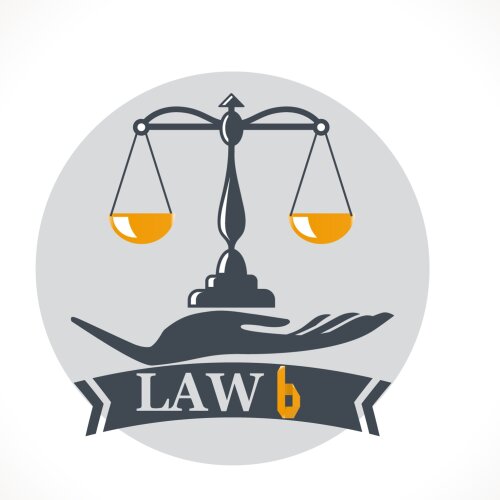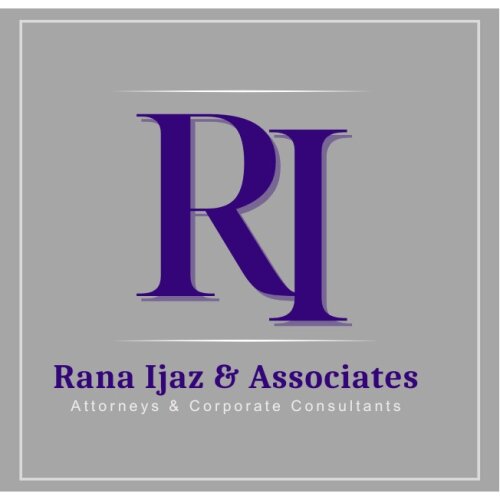Best Health Care Lawyers in Pakistan
Share your needs with us, get contacted by law firms.
Free. Takes 2 min.
Or refine your search by selecting a city:
List of the best lawyers in Pakistan
About Health Care Law in Pakistan
Health care law in Pakistan encompasses a range of regulations and legal frameworks that govern the delivery of health services and the functioning of health care institutions. The health care system in Pakistan is a combination of public and private sectors, with the government responsible for regulating health care policies, providing public health services, and ensuring the enforcement of health care laws. Legal issues in this sector may involve matters related to patient rights, medical malpractice, health care financing, and the ethical obligations of health care providers.
Why You May Need a Lawyer
Individuals may require legal assistance in health care matters in a variety of situations, including:
- Experiencing medical malpractice or negligence that has led to personal injury or harm.
- Facing issues related to health care insurance claims and disputes.
- Dealing with violations of patient rights, such as confidentiality breaches or informed consent issues.
- Ensuring compliance with health care regulations when setting up or operating a health care facility.
- Navigating the resolution of disputes between patients, health care providers, or institutions.
Local Laws Overview
In Pakistan, health care laws revolve around several key aspects:
- Health Care Ordinance: Sets the framework for the regulation of health care facilities.
- Pakistan Medical and Dental Council (PMDC) Regulations: Governs the licensing and conduct of medical practitioners.
- Drug Regulatory Authority of Pakistan (DRAP) Act: Oversees the approval and regulation of pharmaceuticals and medical devices.
- Consumer Protection Laws: Offers avenues for patients to seek redress for grievances involving substandard health care services or products.
- Public Health (Emergency Provisions) Ordinance: Allows for governmental actions in managing public health emergencies.
Frequently Asked Questions
What are my rights as a patient in Pakistan?
Patients have the right to safe, respectful, and nondiscriminatory medical care, including informed consent and confidentiality of health information.
What should I do if I experience medical malpractice?
Firstly, seek a second medical opinion. You can then consult a lawyer to explore filing a complaint or lawsuit against the responsible health care provider or institution.
How can I verify the legitimacy of a health care provider or facility?
You can check with the regulatory bodies such as the Pakistan Medical and Dental Council or local health departments for the accreditation and licensing status of providers or facilities.
Are there any legal protections for whistleblowers in health care settings?
While specific laws are not robust, general legal provisions in labor and penal codes may offer some protection. It's advisable to consult legal counsel.
Can I sue a hospital for negligence?
Yes, if the negligence of the hospital or its staff resulted in harm or injury, legal action can be pursued with the assistance of a legal professional.
How are health care disputes resolved in Pakistan?
Disputes can be resolved through litigation, mediation, or arbitration, depending on the case specifics and involved parties' preferences.
What legal steps should I take to start a health care business?
Ensure compliance with relevant regulations, obtain necessary approvals from DRAP and PMDC, and consult a lawyer for guidance on business structure and contracts.
Is health care insurance compulsory in Pakistan?
No, health care insurance is not compulsory in Pakistan, but it is recommended for better access to medical facilities.
What recourse do I have if a health insurance claim is denied unfairly?
You can file a complaint with the insurance company, approach the insurance ombudsman, or consult a lawyer for potential legal action.
How can public health laws affect my business?
Public health laws can mandate certain health and safety standards that your business must comply with, affecting operations and potential liability.
Additional Resources
For further assistance, consider reaching out to the following resources:
- Pakistan Medical and Dental Council (PMDC): For information on medical licensing and practitioner standards.
- Drug Regulatory Authority of Pakistan (DRAP): For issues related to pharmaceuticals and medical devices.
- The Ministry of National Health Services Regulation & Coordination: For public health policies and regulations.
- Consumer Protection Councils: Available in major cities for addressing consumer grievances, including health care concerns.
Next Steps
If you need legal assistance in health care-related matters, consider the following steps:
- Identify the nature of your legal issue and gather related documents and evidence.
- Consult with a legal professional who specializes in health care law to discuss your case and legal options.
- Be prepared to provide detailed information about your situation for a more accurate assessment by your lawyer.
- Follow through with the legal advice or action recommended by your lawyer, which may include mediation, negotiation, or litigation.
Lawzana helps you find the best lawyers and law firms in Pakistan through a curated and pre-screened list of qualified legal professionals. Our platform offers rankings and detailed profiles of attorneys and law firms, allowing you to compare based on practice areas, including Health Care, experience, and client feedback.
Each profile includes a description of the firm's areas of practice, client reviews, team members and partners, year of establishment, spoken languages, office locations, contact information, social media presence, and any published articles or resources. Most firms on our platform speak English and are experienced in both local and international legal matters.
Get a quote from top-rated law firms in Pakistan — quickly, securely, and without unnecessary hassle.
Disclaimer:
The information provided on this page is for general informational purposes only and does not constitute legal advice. While we strive to ensure the accuracy and relevance of the content, legal information may change over time, and interpretations of the law can vary. You should always consult with a qualified legal professional for advice specific to your situation.
We disclaim all liability for actions taken or not taken based on the content of this page. If you believe any information is incorrect or outdated, please contact us, and we will review and update it where appropriate.
Browse health care law firms by city in Pakistan
Refine your search by selecting a city.

















